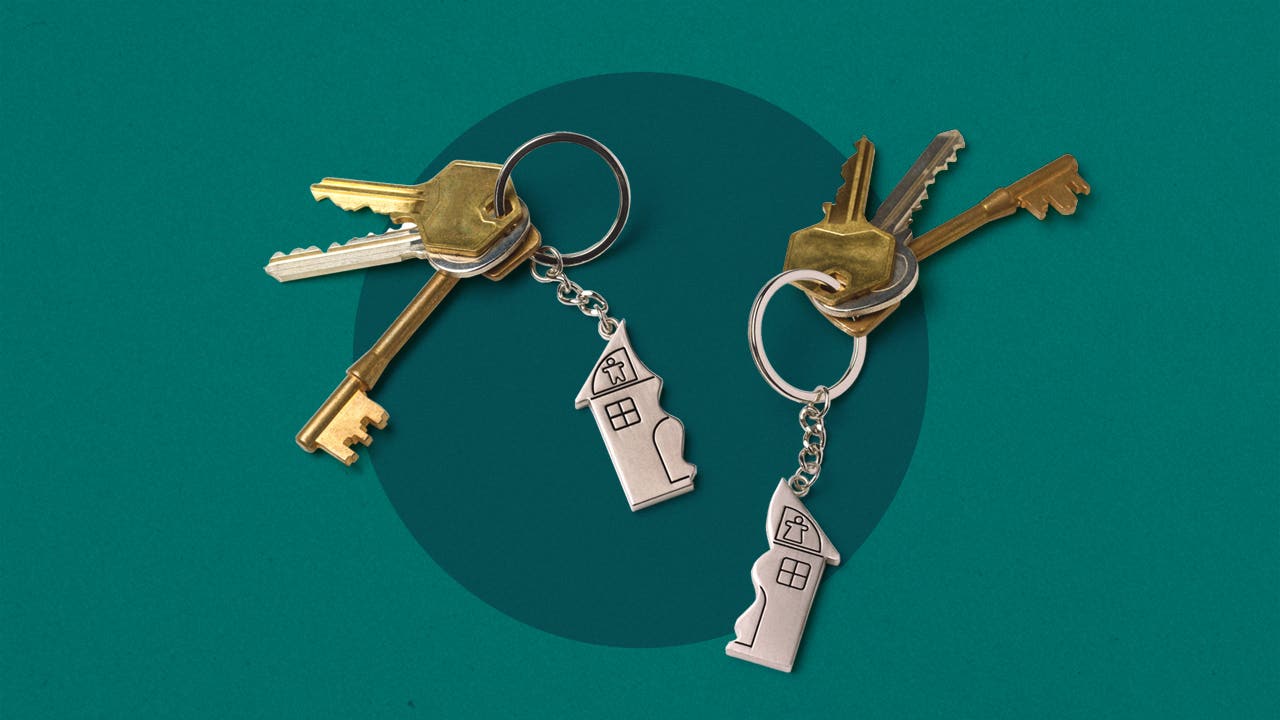Selling your house during a divorce




Selling a house amid a divorce can make an already-complicated situation even more complex. The need to manage a real estate transaction while also managing your interpersonal conflict is stressful, but sometimes financially necessary. Every couple’s situation will be a little bit different, of course, but if you need to sell the marital house due to a divorce, here are answers to some common questions and other things to consider during this difficult process.
Should I sell the house before getting divorced?
You can sell a property before, after or during a divorce, and the best option may be different for each couple. A number of factors can impact the best timing, including housing market conditions, how amicable your split is and the financial needs of each spouse.
One thing that can be useful is to work with a real estate agent who has experience in divorce transactions. “The common denominator for a divorce sale is that the divorcing parties must mutually agree to sell the marital property,” says Lou Rodriguez, an agent with United Realty Consultants in South Florida and author of “Selling Your Home During Divorce: How Everyone Can Win.”
An additional consideration for the timeline of your home sale is the potential profit you stand to make. If the value of the property has gone up significantly since you purchased it, you may have to pay capital gains tax, and the amount is very different depending on whether your taxes are filed jointly or as single individuals. For single tax filing status, you must pay taxes on anything over $250,000 in capital gains. That number doubles to anything over $500,000 if you file jointly as a married couple.
If you sell before the divorce is finalized, be sure you have a plan for what will happen with the earnings. “You’ll want to be careful how you handle the proceeds of the sale so that those proceeds are divided fairly during the divorce process,” says Randi Dukes, an agent with Repeat Realty in Dallas–Fort Worth and a divorce real estate specialist who has earned the RCS-D (Real Estate Collaboration Specialist–Divorce) designation. “It’s often recommended that those proceeds go into a separate account that can be divided upon divorce, rather than mixing the proceeds into other joint accounts.”
What are the options?
When you are going through a divorce, there are several different ways you could decide to sell the family home. Here are some common options.
Sell the house outright
“Often, selling the house makes the most sense because it provides both parties with a lump sum of money to establish a new home and a fresh start,” says Dukes. Selling the property outright means the proceeds can be more easily divided between two people. It also gives both partners the opportunity to establish the next phase of their lives.
Sell it to your spouse
Sometimes it makes more sense for one partner to continue owning the house. This can happen when one partner will have primary custody of the children, for example, as it eliminates the need for the children to move out of their home and be uprooted.
However, this option only works if the partner buying the home can make it work financially. “The spouse keeping the house needs to do their due diligence to make sure keeping it is a sound decision,” Dukes says. “A real estate agent can look at the title to see if there are any liens or second mortgages that one spouse may not know about, and the spouse can talk to a lender or financial advisor to see if they can actually afford to keep the house.”
If this is your plan, make sure you get all your legal ducks in a row. The partner selling the house will likely need to sign a quitclaim deed giving up their rights to the property and transferring them to the other partner — have a real estate attorney manage this process.
Co-own it
You could decide to hang on to the property and continue to own it together. Co-owning might allow you to rent out the property and both gain rental income, for example. Or, you could make the property work for both of you to live there with a renovation that divides it into two units. This can be a viable option for parents who both want to stay near the children.
Give it to your kids or family members
If you’d rather keep the home in the family than sell it, you could consider gifting the property to your adult children or another relative. This option eliminates the need to prepare the property for a sale and could be a way for both partners to put the property in the hands of someone they love. Again, be sure to have a real estate attorney handle the deal for you to ensure that ownership is properly transferred — and it’s a good idea to talk to a tax professional as well, to understand any tax or estate planning implications.
Community property states vs. equitable distribution states
There are two main legal approaches to how property is divided after a divorce. It all depends on whether you’re in a community property state or an equitable distribution state.
The majority of states fall into the category of equitable distribution, which means if one party earns or purchases certain assets, those assets are considered theirs individually. The assets don’t become shared property unless both parties agree to share them. “I live and work in Florida, an equitable distribution state, which simply means Florida courts will divide marital property in a manner which it considers fair, but not necessarily equal,” says Rodriguez.
Community property states, on the other hand, consider all assets acquired during a marriage to be jointly owned by both parties, and they are divided equally in the event of a divorce. Only nine of the 50 states are community property states, according to the IRS: Arizona, California, Idaho, Louisiana, Nevada, New Mexico, Texas, Washington and Wisconsin.
How to sell a house during a divorce
Selling a house can be stressful and time-intensive no matter what. Follow these steps if you decide to sell your house during your divorce proceedings.
1. Hire an experienced real estate agent and lawyer
Not every real estate agent or attorney knows how to navigate the conflict and tension that can come with selling a house during a divorce. It’s important to work with someone who has experience in sales like this, or even specializes in them.
“I would recommend that you work with someone who knows how to work in high-conflict situations and has experience in getting people moving in one direction to accomplish shared goals,” says Rodriguez. “Because whatever happens during the sale — accepting an offer, countering an offer, all the way to signing closing documents — requires that both parties agree each step of the way. It makes a difference having a transactionally experienced listing agent who has worked with other divorcing clients.”
2. Get a home estimate and agree on a sale price
It’s important that both parties come together on pricing. There are various ways to determine how much your home is worth, from online estimators to a thorough analysis of your local market prepared by a real estate agent. But a professional home appraisal, which will cost several hundred dollars, is probably the most accurate assessment of a home’s market value.
3. Sell the home and split up the net proceeds
Once you agree on the terms and price for selling the home, your agent will guide you through the home-selling process. This will involve preparing the home for the market, taking professional photos for the listing, listing and marketing the property, coordinating showings, reviewing offers and preparing all the closing paperwork. Once the sale is closed and complete, the proceeds will be shared as required by your state and established by your attorney.
Next steps
Ready to sell? It’s important to find a local real estate agent both of you feel you can trust. “Look for someone with additional training in divorce real estate, and ask them about their experience,” says Dukes. This type of agent will be skilled in handling not only the home sale but also any interpersonal conflict that may arise.
FAQs
-
The best time to sell a house will be different for different couples. “If both spouses agree, then selling your house before filing for divorce is an option — if you’re trying to take advantage of a strong seller’s market, this might be a good idea,” says Randi Dukes, a Dallas–Fort Worth Realtor who specializes in divorce real estate. However, selling the house after the divorce may be the right choice for other couples. Whichever timeline you choose, it’s important that both partners agree on the process.
-
In some cases, if both parties can’t come to an agreement on how to sell the property, yes, a court may intervene to force the sale. The laws will differ depending on your state and your specific circumstances, so be sure to consult both your divorce lawyer and a real estate attorney in your area.
Why we ask for feedback Your feedback helps us improve our content and services. It takes less than a minute to complete.
Your responses are anonymous and will only be used for improving our website.




